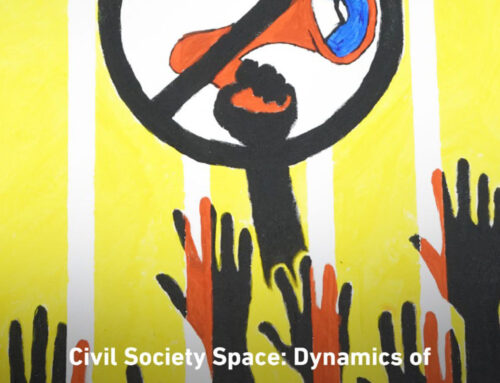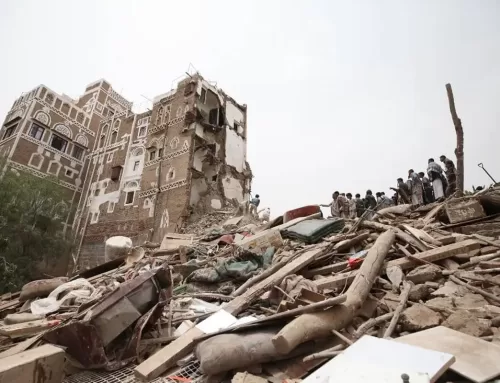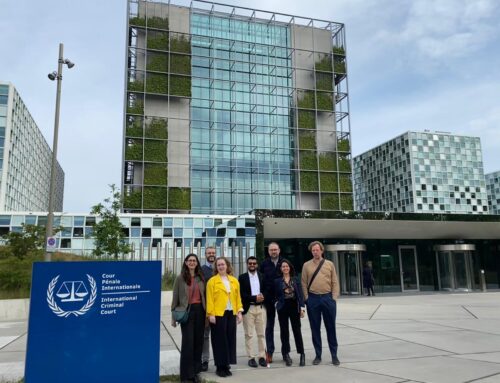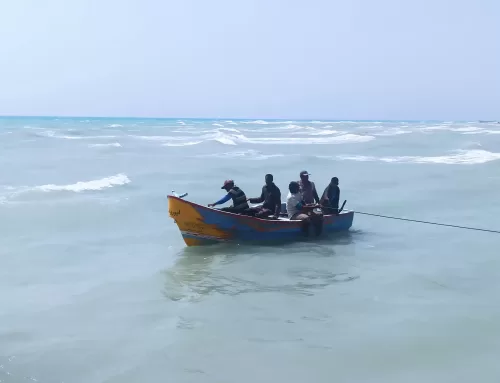The Transitional Council must surrender those who killed Abdul-Malik Al-Sanabani
October 5, 2021
(Sanaa) – The Southern Transitional Council must surrender the defendants in the case of killing Abdul-Malik Al-Sanabani to the Public Prosecution. Failure to comply with the prosecution’s orders to surrender the defendants for investigation and refer them to trial is a serious conduct that would perpetuate the policy of impunity and keep the STC-controlled areas and residents in isolation from the rule of law and principles of justice, which opens up possibilities for horrendous violations. Mwatana for Human Rights, said .
Abdul Malik Al-Sanabani (30 years old) was killed after he had been stopped at Al-Farsha checkpoint in Tur Al-Bahah district, Lahj Governorate at around 10 am, Wednesday, September 8, 2021, by armed elements affiliated with the Southern Transitional Council. He was on his way to visit his family in Sana’a after arriving at Aden International Airport from the United States of America, where he has resided for seven years.
“The incident of arresting and killing Abdul-Malik Al-Sanabani, and then how the Transitional Council dealt with it, is an example of the violating parties’ indifference and unconcern because of the lack of accountability. This reaffirms the responsibility of the international community to work on opening an international track for accountability to protect civilians in Yemen”. Radhya Al-Mutawakel, Chairperson of Mwatana for Human Rights, said.
Witnesses interviewed by Mwatana said that they saw the victim, at about 10:30 am of that day, on a military vehicle belonging to the Transitional Council in front of the Al-Khattabi Medical Center located in Al-Khattabiah area of Tur Al-Bahah district, Lahj Governorate. One of the witnesses, who gathered around the military vehicle when a doctor came out to provide first aid to the victim, confirmed that “the victim was alive, lying on his stomach on the military vehicle, his hands and feet were tied up, and he looked frightened,” and that he received the first aid, for two fragments in his right leg, on the vehicle, before the military vehicle started again towards the highway located southwest the area.
On the evening of the day Abdul-Malik Al-Sanabani was arrested, mass and social media circulated the news of his murder by the Transitional Council forces. The photo posted by the victim’s father showed signs of torture on separate parts of his body. The victim’s father stressed to Mwatana that the perpetrators must be brought to a fair court in which the rights of his son will be redressed.
In an interview with Mwatana, Al-Sanabani’s family said, “After nearly a month of legal follow-up on the case before the Public Prosecution Office in Aden Governorate, and despite the warrant by the Public Prosecution Office to apprehend the perpetrators for investigation, nothing happened”.
Armed formations affiliated with the Transitional Council in Lahj governorate have already refused to surrender the defendants to the prosecution office. The family added that it was informed that the Transitional Council will bring the defendants to a military court instead of handing them over to the competent judicial authorities.
Mwatana for Human Rights considered that the failure to surrender the defendants to the prosecution office under the pretext of submitting them to a military court would perpetuate impunity and obstruction of justice. Knowing that the armed formations of the Transitional Council are irregular, and, therefore, are not subjected to the existing military judiciary, whose jurisdiction is only limited to offenses committed by members of government armed forces.
This is not the first time that travelers have been killed at the checkpoints of the UAE-backed Transitional Council [STC]. Throughout the STC control over the governorates of Aden, Lahj, Al-Dhalea and part of Abyan, the STC deploys armed elements, affiliated with the formations of the so-called Elites and Security Belts, in checkpoints based all along roads and city outlets. Such elements do not comply with the laws in force, where they replace the security authorities and law enforcement institutions, and commit extensive violations.
Since 2018, Mwatana has documented at least 36 incidents of various types of violations committed by the Transitional Council checkpoints against travelers, including arbitrary detentions, financial extortion, denial of passage, and even murder.
During the years of war, the conflicting parties imposed restrictions on the freedom of movement in Yemen through checkpoints they implanted at the entrances to areas controlled by the various parties, as a form of hegemony and domination over civilians based on their geographical and political affiliation, even based on their surnames, which deprived civilians of their freedom of safe movement, and made them vulnerable to different types of abuse.
Since the beginning of the conflict in Yemen, Mwatana has also documented (30) incidents of killing and wounding civilians with live bullets at checkpoints affiliated with various parties to the conflict.
“The incident of arresting and killing Abdul-Malik Al-Sanabani, and then how the Transitional Council dealt with it, is an example of the violating parties’ indifference and unconcern because of the lack of accountability. This reaffirms the responsibility of the international community to work on opening an international track for accountability to protect civilians in Yemen”.
Radhya Al-Mutawakel, Chairperson of Mwatana for Human Rights, said.
International human rights law, which protects the freedom of civilians to move, remains applicable even in times of armed conflict. The Universal Declaration of Human Rights states, “Everyone has the right to freedom of movement and residence within the borders of each state.”
Mwatana stresses that the Southern Transitional Council must compel all its armed formations to the rule of law, rehabilitate its members after their reintegration into the security institutions, in accordance with the controls of the laws in force, and give strict instructions not to prejudice the civilians’ right to freedom of movement under any circumstances.






